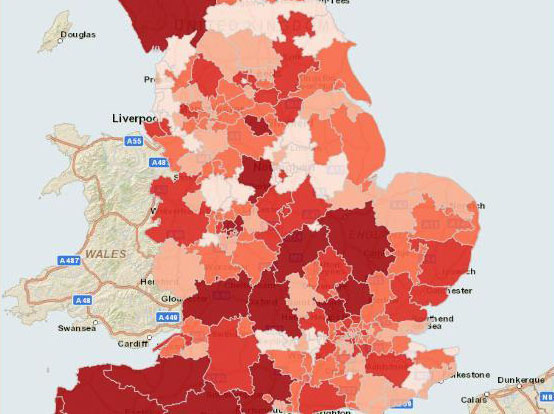KONP ICS working group

The Health and Care Act, passed in May 2022, has fragmented the NHS in England into 42 semi-independent areas known as Integrated Care Systems (ICSs).
ICSs’ apparent aim is to integrate health and care organisations: each ICS is charged with bringing together NHS bodies (such as hospital trusts), local councils and others (potentially private companies) to take joint responsibility for delivering services within a fixed budget for those people registered within its area.
KONP strongly supports the integration of services where this improves patient care: many NHS and care staff already work hard to achieve this. But ICSs are first and foremost about making the organisations within an ICS work together to reduce patients’ use of NHS services and so save money. There are also concerns that ICSs further the privatisation of the NHS: they provide new opportunities for the private sector to both influence service provision and profit from public funding, as well as gaining increased access to patients’ health data.
What is an ICS?
ICSs have two key roles:
- to bring about ‘system transformation’ by, for example,
- changing local health and care services;
- developing new strategies for the infrastructure needed
- rethinking how to exploit the remaining publicly-owned NHS buildings and land; and
- rethinking how to redeploy the healthcare workforce.
- to control the performance of all organisations within the ICS, especially their financial performance.
An ICS will provide services for populations of varying sizes but roughly for between one and three million people. They have three main tiers:
- an overall ‘system’, managed by an Integrated Care Board (ICB), a statutory body that sets an ICS’s strategic direction and ultimately controls spending, although some funds and commissioning of services are delegated to ‘places’.
- the level of ‘place’, typically covering a population of around 250,000 to 500,000, and usually contained within the boundaries of a single local authority borough. Places are managed by an Integrated Care Partnership (ICP), also a statutory body but one where membership may include representatives from the private sector; and
- the level of neighbourhood, typically covering a population of between 30,000 to 50,000, where, e.g., groups of GPs and community-based services work together, and managed
Taking action
See our webpage on taking action about ICSs here
NEW ICS DATABASES developed by the ICS Working Group can help campaigners find information about the NHS contracts that ICBs,Trusts and Foundation Trusts have signed with the private sector (such as how much they have spent on a contracted company or whether it has a track record of violating legislation).
➤ NEW ARTICLES
New Payment Scheme will have profound impact
Few patients, NHS staff or health campaigners have heard of the new Payment Scheme introduced by the Health and Care Act 2022. As the Bill went through Parliament, only Margaret Greenwood MP and Lord Hendy spoke out against the Scheme. But it will have a profound impact on the finance available in each Integrated Care System (ICS), and therefore on staffing and patient care.
Read/download full article…
Background information
- For a critique of NHS England’s proposals for setting up ICSs (Integrating Care), and an explanation of the new opportunities they offer the private sector see: Corporate Agenda for Integrated Care, KONP, January 2021
- KONP comments on Integrating Care and an alternative vision for the future: See An alternative vision: achieving democratic accountability, by Keep Our NHS Public, January 2021
- KONP comments on Integrating Care and the implications for social care: See Social care: relationship to ICSs, by Keep Our NHS Public, January 2021
- A summary of key proposals, including for finance, workforce and data, as set out in the Department of Health and Social Care’s White Paper Health and Social Care integration: Joining up care for people, places and populations: See Notes on the White Paper ‘Health and social care integration: Joining up care for people, places and populations’ March 2022
- A critique of how each ICS has to obtain ‘best value’ when commissioning services: See The (mis)use of ‘value’ in Integrated Care Systems (ICSs) to enable financial cuts. (To read more about ‘value’ in healthcare, including the concept of ‘overuse’ in ‘allocative value’, see (URL link to Resources Cabinet – needs link) )
- How the free flow of data between the public and private sectors is a top priority for our current government and how ICSs enable this. See The Integrated Care System as a key site for private companies’ access to patient data.
- NHS provider selection regime: response to consultation, July 2021 – proposes a reduction in regulation and scrutiny, no need for tendering, and help for private providers.
NHSE papers
NHSE’s report on Consultation on the White Paper: Legislating for ICSs
